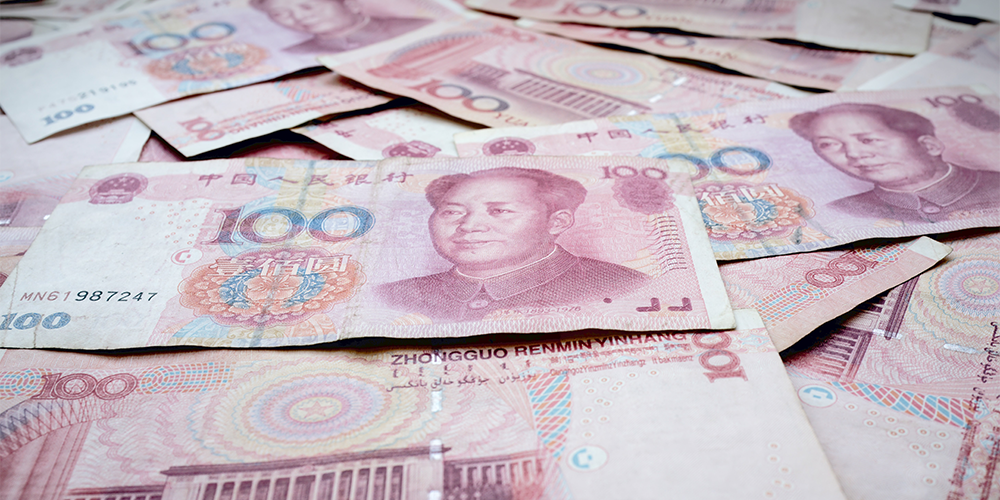The renminbi’s global financial and reserve role remains a hot topic of conversation. Some argue the currency is coming of age and that a digital renminbi will propel it forward. Others, including myself, believe the renminbi’s global role will remain quite modest for the foreseeable future. While Chinese authorities may find it beneficial to deprecate the dollar and the US role in the international monetary system, a major global role for the renminbi is not now in China’s interest.
It’s all about control. Chinese authorities want to maintain strict control over the economic and financial system, mainly to guard against potential instability. That only complements the trend towards increased political control over Chinese society under President Xi Jinping.
The dollar’s global status reflects the size and openness of the US economy, good legal protections for investors and the depth, robustness and liquidity of American financial markets. The US has an open capital account. That contrasts sharply with China and its interests.
The dollar floats in foreign exchange markets and can widely fluctuate at times. Its global role attracts capital. One implication is that the dollar is often seen as ‘overvalued’. In contrast, the renminbi is managed with a view towards maintaining the broad stability of the currency. It is not convertible. The authorities are not prepared to let the renminbi float.
The US runs continuous current account deficits. China has habitually run significant current account surpluses. While these have come down sharply relative to gross domestic product over the last decade, China’s merchandise trade surplus remains sizable. China’s export sector remains a significant growth driver and key pillar of the economic model. While there is much talk about that model shifting to domestic services and consumption, recent saving and investment trends suggest the transition is proceeding slowly.
China’s aversion to free floating relates not only to the current account, but critically the heavily controlled capital account. The US is generally comfortable with swings in capital flows, absorbed through its deep capital markets. China is not. Despite controls, large capital inflows and outflows can strain China’s ability to manage the renminbi.
For example, in the period between mid-2010 and early 2014, the renminbi moved up against the dollar even in the face of heavy official Chinese dollar purchases, as market participants saw renminbi/dollar appreciation as a one-way bet. But through early 2017, the Chinese currency fell sharply after authorities made clear that renminbi appreciation could no longer be seen as such. The selling pressure was so intense the People’s Bank of China sold some $1tn to avert further depreciation.
More recently, as renminbi assets have been included in global bond and equity indices and favourable yields on Chinese government bonds have attracted inflows, the authorities’ strategy has sought to allow some capital account opening, balancing inflows and outflows. They know, however, that this can be a risky strategy. Chinese portfolios are domestically concentrated, but many citizens wish to internationalise them. Errors and omissions in balance of payments data suggest that there may be a strong desire among Chinese residents to move money out.
Pushing for a global financing and reserve role for the renminbi could perhaps be a useful strategy for encouraging domestic financial market reform. That strategy was deployed by former PBoC Governor Zhou Xiaochuan. But caution is needed in allowing steps towards internationalisation – such as capital account liberalisation – to run far ahead of domestic reforms, a point Zhou and his team well understood. Getting that balance wrong could potentially unleash instability.
Economists agree that to reap the benefits of capital account liberalisation, it must be sequenced with financial sector reform. Without a strong banking system, large capital outflows and their exchange rate consequences can give rise to costly national balance sheet mismatches. China’s financial and non-financial corporate system is renminbi-driven, so this is not significantly problematic at this time. But its banking system remains weak, non-performing loans are woefully under-reported and masked by evergreening and its capital markets are underdeveloped. That too will weigh on authorities’ minds, particularly as they grapple with excessive leverage in the Chinese economy.
Xi has strongly pursued statist policies, reasserting party control over economic life. Recent official actions with respect to technology provider Ant Group, transport company DiDi and other financial technology firms show that the authorities are committed to retaining tight control over financial markets and information flows. Chinese control over Hong Kong will compromise Hong Kong’s role as a beacon of financial openness. Together, these factors will also dampen global investor enthusiasm for the renminbi.
Chinese authorities have significantly ramped up their far-reaching efforts to control the financial system and innovation. It’s not in China’s interest to pursue a global financing and reserve role for the renminbi until it makes major strides in strengthening its financial system, revamping its growth model and giving up control to allow a more invisible hand to flourish. The authorities know it.
Mark Sobel is US Chair of OMFIF.
